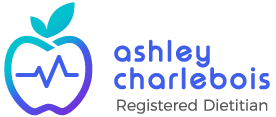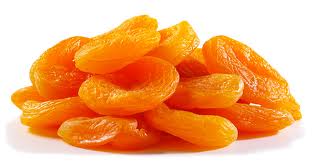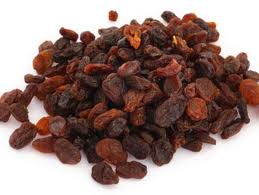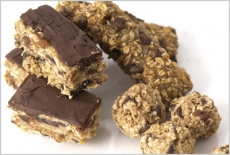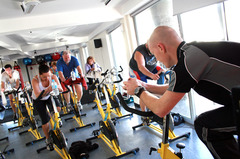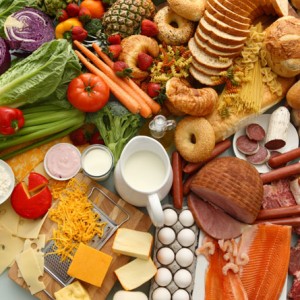I did my first avalanche safety training course this weekend just north of Vancouver so that I can start doing more backcountry snowboarding trips — preferably without ever getting caught in an avalanche. First things first, all you skiers out there are probably mocking the fact that I snowboard right now. You know what? Nothing feels better than riding through fresh powder and feeling like you’re surfing on water. However, I do realize that, especially for backcountry, skiing just might have more advantages (i.e. more efficient ways to hike up without the use of snowshoes)… I still like snowboarding better. Now that we’ve cleared that up… onto more important things! This dietitian is once again talking about nutrition. More precisely, how to properly fuel and hydrate in the backcountry.
Make 2012 Your Healthiest Year Yet!
Happy Belated New Year! After the holiday season of over-indulging passed, it became the perfect time for New Year’s resolutions focusing on healthy eating and exercise. A chance to set out and accomplish goals we’ve always talked about but maybe gave up on doing in 2011. Not this year!!

Lactose-free, wheat-free, onion-free, garlic-free… but WHY??
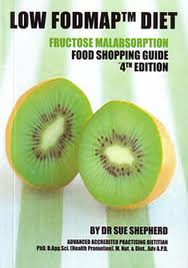
You’re probably wondering what this weird word “FODMAP” means. First, it’s an acronym. It stands for Fermentable Oligosaccharides, Disaccharides, Monosaccharides and Polyols. Now you’re probably wondering what all these strange, long, hard-to-pronounce words mean. Simply put, they are all short chain carbohydrates or sugars (what the term ‘saccharide’ means). Why a low FODMAP diet? Because people who suffer from irritable bowel syndrome (IBS) and even some with inflammatory bowel diseases (IBD) can hugely benefit.
Whole Grains Are Not Evil
Carbs always get a bad rep, but they don’t deserve it. Take it from a registered dietitian. Did you know that carbohydrates are less calorie-dense than protein and fats (the other two macronutrients)? And that the right types of carbs – whole grains and vegetables & fruit are extremely beneficial for optimal health by helping to protect against diseases such as cancers, heart disease, stroke, metabolic syndrome, diabetes, and obesity? How about the nutrients (mostly B vitamins) and fibre found in whole grains that contribute to these health benefits? And the fact that having a sufficient amount of whole grains improves digestive health because of the high fiber content? If you’ve seen the latest attack on carbs, specifically on whole wheat products by Dr. Wiliam Davis on “the evils of wheat” – please read this post!
Dr. William Davis is saying whole wheat spikes your blood sugar levels more than a candy bar because of the type of amylopectin present in wheat. That’s an over-exaggeration. It has a modest effect, does spike it more than quinoa or another whole grain, but less than white bread/flour or candy. However, keep in mind that when you eat bread, you don’t ever want to eat just a piece of bread on its own. You want to combine it with some protein to prevent your blood sugar levels from spiking and feeling hungry again within half an hour.
Silent Sufferers of Digestive Health Issues
There are so many of us who suffer from digestive health issues. Whether it’s undiagnosed, irritable bowel syndrome (IBS), o
IBS and IBD in parti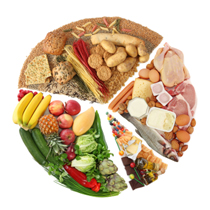
Now, there’s even hope for a less tedious process of eliminating trigger foods for those suffering from IBS and sometimes those suffering from IBD. There’s been recent scientific evidence showing that short chain carbohydrates (oligosaccharides, disaccharides, monosaccharides and polyls), may contribute to symptoms of IBS such as bloating, pain, and changes in bowel movements. Shorter chain carbohydrates are more rapidly fermented by bacteria in individuals suffering from gut mobility issues, thus contributing to common IBS symptoms. The elimination of foods high in short chain carbohydrates has actually been scientifically proven to help improve symptoms in 75% of those suffering from IBS symptoms. For more information, check out Shepherd Works’ website about the low FODMAP diet.
So for any of you who are experiencing discomfort with digestion, (whether it be stomach aches, changes in bowel movements, bloating, gas, or anything else) first mention it to your doctor. He/she might run some diagnostic tests to try and figure out what is going on. Second, a registered dietitian specializing in gastrointestinal health can potentially help you alleviate symptoms further. No need to suffer in silence – gain control over what’s causing your discomfort on a regular basis, it can be done.
Planning for a Weekend Getaway
August long weekend starts tomorrow, and what better time than the present for an outdoor adventure! My choice this weekend – a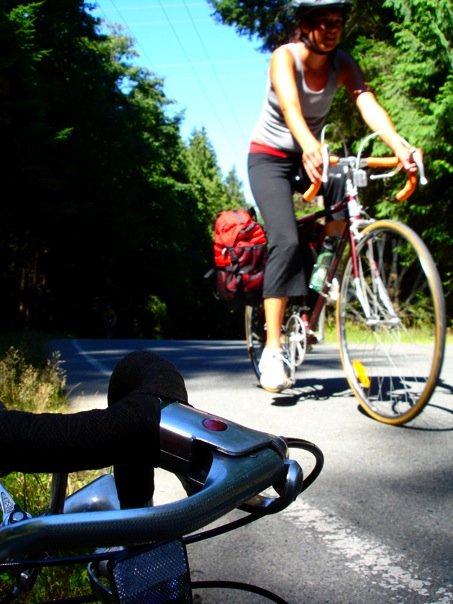
As a dietitian, I’m usually quite prepared for trips like these. Like I mentioned in my last blog post, eating something every 2-3 hours is key to maintaining energy levels throughout the day. Therefore, it’s essential to bring lots of snacks and meal ingredients to power us throughout our weekend ride. Normally I take the time to even bake some homemade energy bars in advance, but unfortunately my schedule hasn’t allowed for that this time. Instead, I’ll have to turn to convenient options from a grocery store.
For anyone planning a camping trip themselves, whether you plan on hiking, biking or both – you probably already know about the necessity to pack light. What I’ve learned from others, and from personal experience, is that bringing fresh vegetables & fruit is an immediate NO! This is hard to take in, especially coming from someone who recommends eating at least 7 servings of vegetables and fruit a day. But, when you’re carrying your tent, sleeping bag, thermorest, camping stove, clothes, etc., the last thing you want to add is a few additional pounds of fresh produce. So, how do we do it? Dried fruit and dehydrated vegetables.
That being said, here are my picks for snacks this weekend:
SunRype fruit source bars
Dried apricots and raisins
Trail mix – homemade containing nuts, seeds, nuts, dried fruit
Turkey pepperoni sticks
Protein bars (Larabar, Cliff, Elevate Me, ProBar are all good choices)
Sports drink – homemade (½ litre water, ½ litre 100% fruit juice, and 1/3 tsp salt)
While engaging in any activity, it’s best to consume something with a high amount of carbohydrate as it’s our body’s primary source of energy during this time. If we add protein, it will take longer to digest, and longer for our body to be able to use the fuel. I’ll be eating the fruit bars, dried fruit, and sports drink during my rides for this reason. Anytime in between, however, I’ll be sure to add some protein. Trail mix, protein bars, or turkey pepperoni sticks and dried fruit will make for great snacks.
What about meals? They need to fulfill the following 3 criteria: light, easy, and of course, nutritious. Aim for at least 3 of the 4 food groups at each meal. Here are my picks for this weekend:
Breakfasts – oatmeal with raisins, nuts, and skim milk powder
Lunches – whole grain pitas with lower fat cheese and salami
Dinners – dehydrated soups (with vegetables, beans, and chicken), and instant rice (wild or brown) with dehydrated vegetables and an added can of tuna
A little bit of planning goes a long way. If you’re planning an active weekend getaway, or any type of getaway, do your body a favour and ensure you fuel appropriately! Not to mention drinking plenty of fluids the whole way.
In case you have some extra time before departing on your adventure, try these homemade energy bars:
1 c quick cook rolled oats
½ c whole wheat flour
½ c cereal (eg. bran flakes, grapenuts, all bran)
1 tsp cinnamon
1 beaten egg
¼ c applesauce
¼ c honey
2 tbsn vegetable oil
¼ c sunflower seeds
¼ c chopped walnuts or almonds
1 ½ c chopped dried fruits (i.e. apricots and raisins)
Preheat oven to 325 F. Line 9 inch square baking pan with aluminum foil and lightly grease.
In large bowl, stir ingredients: oats, flour, cereal, cinnamon. Add egg, applesauce, honey, oil. Stir sunflower seeds, walnuts, dried fruits.
Bake 30 min or until firm and light brown around the edges. Let cool. Use foil to lift from pan. Cut into bars / squares and store in fridge.
* Note: If you want to add some more sweetness to these bars either add in ½ – 1 cup chocolate chips to the mixture, or melt this amount of chocolate and drizzle on top of bars once cooled.
Enjoy!
Energize your Life!
Ever feel fatigued halfway through your workout? Feel like you want to push yourself harder but physically are just unable to? How about that mid-afternoon slump during the workday where you just can’t get anything done? It all comes down to energy levels. And guess what – diet has a huge part to play.
Last week during the second half of an intense cycle class at the gym I was feeling… fantastic! I looked around, and it
made me feel even stronger, because I seemed to be one of the few that was able to keep up with the instructor, an elite cyclist. How could this be? I am in no way an elite cyclist. Yes, I do enjoy biking, I do have a good base level of fitness, and I am determined to regularly challenge my body physically. But I hadn’t been to a cycle class for weeks before this one, yet alone started to commute daily to work by bike (that started this past week when the sun came out!). I am 100% convinced that the reason I could push hard throughout the hour long class was because of my diet. I had a pre-workout snack, yogurt and fruit, high in carbs (our primary source of fuel during moderate to intense activities) just over an hour before my workout, and healthy meals and snacks throughout the day leading up to it. This enabled me to push myself hard, keep up with the instructor, and feel great throughout my workout.
A simple explanation for this – blood sugar levels. When we eat foods, they cause a rise in our blood sugar levels. Our food is digested and some of it (depending on what we eat) is broken down into glucose, or sugar, which gets fed into our cells and used for energy. This is what kept me going during my cycle class. This is also what keeps anyone going during everyday activities. However, when we feel hungry, tired, or just low in energy – this is when our blood sugar levels are below normal. We have no fuel in our bodies for our everyday activities. But our bodies are still functioning – how? By breaking down internal stores of fat and muscle. This in turn causes a decrease in strength and endurance during activities, and the feeling of fatigue and poor concentration at work.
How can we avoid low energy levels and their side effects? By eating small frequent meals throughout the day. Aim to not go longer than 3 hours without eating. This will ensure energy levels are consistent throughout the day – avoiding the spikes in blood sugar or extreme lows in blood sugar, but staying somewhere in the middle, within our normal range (somewhere between about 4 – 8 mmol/L). Here’s a sketch to help you visualize:

What we’re eating also has a part to play. A nutritious, well-balanced diet is key. A diet rich in vegetables and fruit, whole grains, protein, and low-fat dairy products or alternatives (to provide us with calcium and vitamin D).
Everyone is different. Depending on your schedule, your daily activities, or your sport and the intensity and duration of your training sessions – you will need to fuel your body accordingly. What and when you eat are two key things to take into consideration. If you’re an athlete, or even just engage in sport or exercise once in a while – timing, specific nutrient make-up, and size of meals and snacks depends on when you will be engaging in exercise. You want to eat something that will be digested in enough time to fuel you for your activity, but no too far in advance that you have no energy left during your activity. Sometimes it is necessary to top off your energy levels with a high carb snack during your activity, and always necessary to re-fuel with carbs and a little bit of protein after your activity.
No matter what, DO focus on eating healthy foods throughout the day at regular intervals. Nutrition is a powerful tool that can greatly affect how you feel throughout the day, and throughout your workouts or sport!
How I Became a Dietitian
Some people are passionate about music, some are passionate about dance. Some people are passionate about cars, others about keeping the grass green. I am passionate about nutrition, and the power it has to help treat disease, manage symptoms, optimally fuel the body for athletic performance, and improve overall lifestyle. Going hand in hand with nutrition, a second passion of mine is exercise. I truly believe this is the ultimate combination – if one can eat healthy and exercise regularly, they will feel better, look better, perform better, and have the ability to live life to the fullest.
I want to share my passion with you, in hopes that you too will want to jump on the “healthy lifestyle” bandwagon. Before I start blogging about all things healthy, let me give you an idea of how I became such a strong believer in nutrition and exercise.
Growing up, I suffered from stomach aches and digestive problems. I learned at a young age the strong connection our diet has with how our bodies feel. My symptoms were so bad that I would miss days of school, and later on would always be nervous about going out with friends in my early high school years, wondering if I would get an “attack”. I would constantly question foods – “Mom, do you think this will make my stomach hurt?”. Eventually, I learned that my mother did NOT have all the answers in life (GASP!!) and could no longer answer all my questions about which foods would and would not cause me pain. Doctors weren’t even able to answer my questions. So, I started figuring it out on my own – the healthier my diet became, the better I felt. By the time I got to that stressful point at the end of high school where I had to make a decision about what I wanted to do with the rest of my life, I started scrolling through University programs of interest, and stumbled upon “Dietetics”. At the time, I had no idea what that word meant, let alone how to pronounce it. But reading on, I quickly realized that this was the program for me. I met all the criteria: I loved food, I was a science nerd, and I 100% understood how closely diet and health were related.
Then came my first year of undergrad – living away from home, meeting new people, cooking your own meals?? I gained the freshman… 20. In what started solely as an attempt to get back to my usual weight by going to the gym regularly and ‘healthifying’ my diet even further, not only did I achieve my weight goal, but I completely got rid of all my stomach problems! This was a life-changing experience for me. No longer did I suffer from the symptoms of Irritable Bowel Syndrome, through my natural concoction of healthy eating and regular exercise, I felt cured.
This lead to my new love for not only diet, but also exercise, used in combination to help others manage their own diseases and symptoms. I moved to the healthy city of Vancouver, and completed my Masters of Science in Exercise Physiology with a focus on nutrition. During this time, I worked with chronic kidney disease patients and developed and implemented a comprehensive nutrition and exercise program to improve their health. Guess what? It worked.
I am determined to continue doing what I love – helping others achieve a healthy lifestyle through diet and exercise.
Sports Nutrition
Are you an athlete who needs to optimize your food intake?
Cardiovascular Nutrition
Do you have heart disease or have a family history of heart conditions?
Gastrointenstinal Nutrition
Do you have stomach pains or digestive issues?
